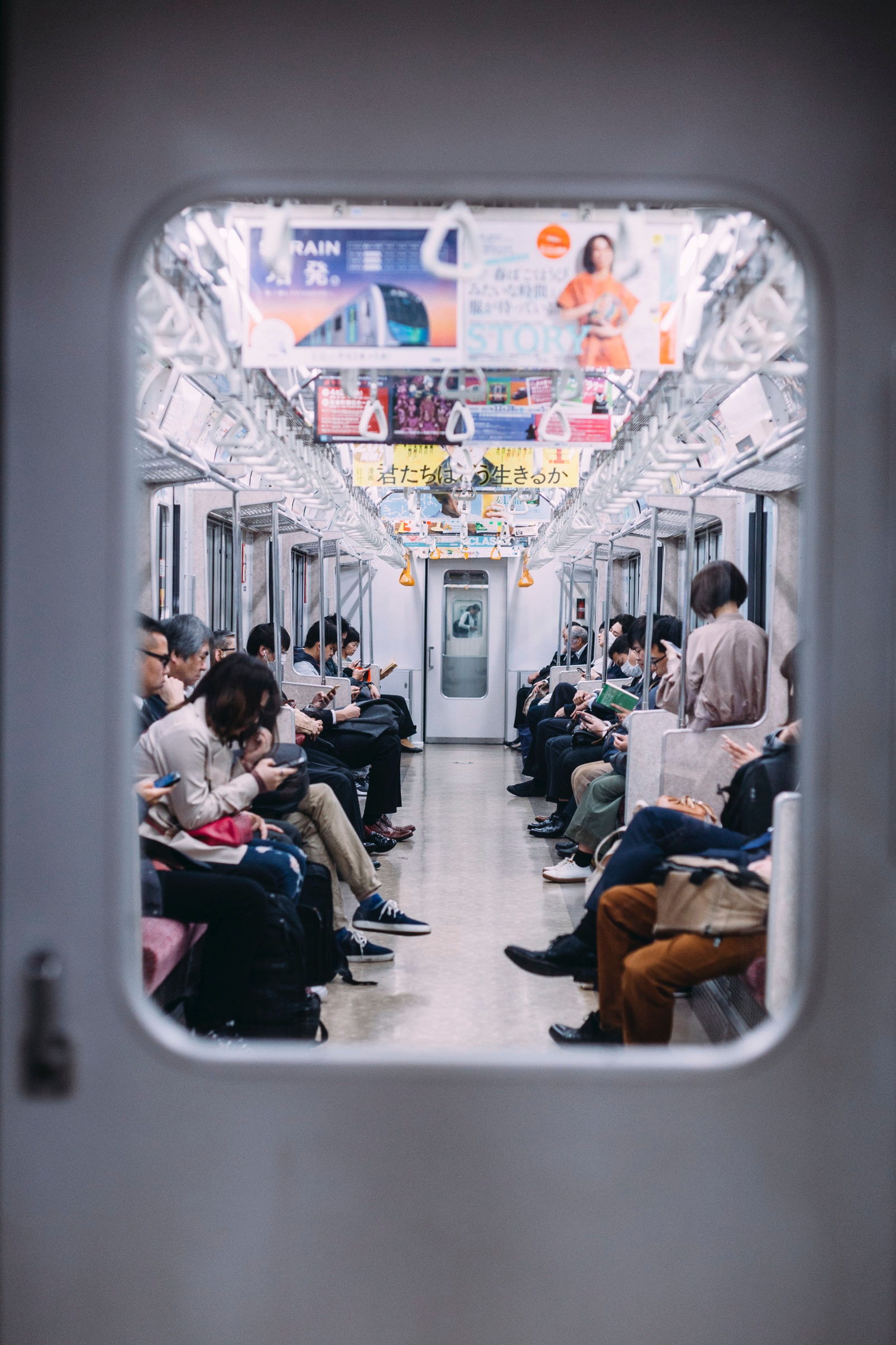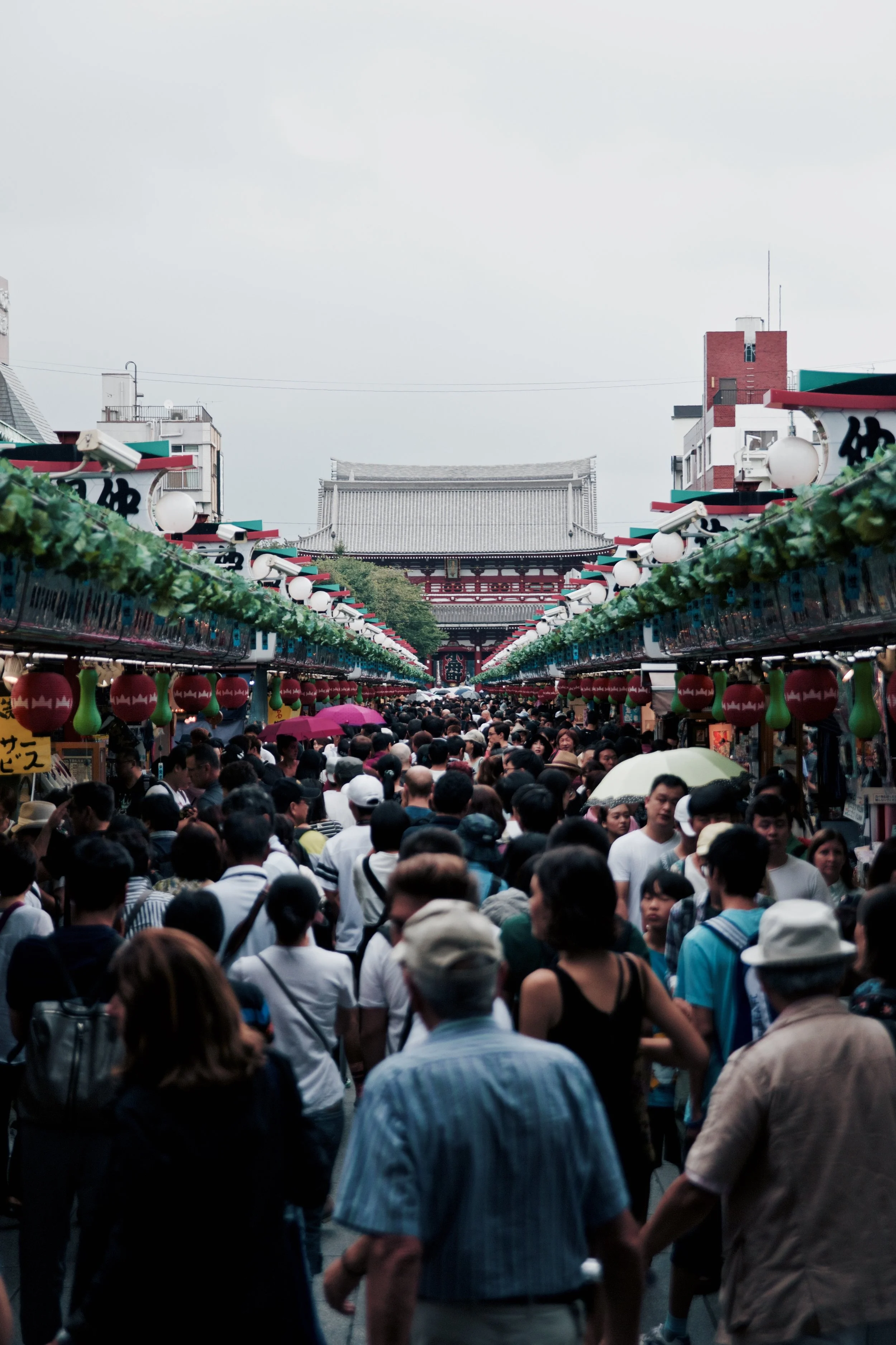If you have been following my podcast series on Japan, you know how much I enjoyed exploring this country; seeing all the natural beauty, dining on phenomenal foods, learning more about the culture. For everything that is great about Japan, solo travel in this wonderful country has some challenges, too. Here are my tips for tackling solo travel in Japan as well as some problems that can arise in Japan and how to overcome them.
My Japan Solo Travel Tips
I’ve broken these tips into different categories for your convenience. Here they are:
Transportation
1. If you are traveling to more than one city in Japan, you should buy the jr. Rail Pass. The JR Rail Pass is best for traveling from city to city, not within one city. It’s like a Eurail pass and you can go all over Japan on the jr rail lines. You can buy it for 7 days, 14 days or 21 consecutive days. And it's not terribly expensive. I think that the 7-day is $210 dollars, but to ride on these fabulous trains, it's worth it.
The train stations are very centrally located. With the JR Rail Pass, you have the pass you go through a special line, so there's no waiting. I mean you can get there five minutes before the train and there's no problem. If you get lost, you can ask the attendant how to get to the right track.
If you go into multiple cities, I think it's a must. One thing about it is you have to be a foreigner to purchase it, and you must buy it before you get to Japan. Then, once you arrive, go to the station and get the JR officials to stamp it. One thing you want to do is to reserve the JR pass beginning on the first day you will actually be using the train. Say you’ll be in Tokyo for 5 days before going to Kyoto - well, you’ll want to have the pass start on the day you plan to head to Kyoto, otherwise, you’re just wasting days you’ll likely end up paying for individual trips, which will add up. Overall, the JR Rail Pass is a good investment. I did it and I thought it was wonderful.
2. Use Yomato: a luggage forwading service. This is fabulous! You can organize this with either your hotel concierge or even a convenience store. You just tell the attendant where you want your luggage sent (i.e. you next hotel) and you don’t have to worry about lugging it onto the train or through the city! It only costs around $20!
3. Invest in a Pasimo/Suka card. This is a prepaid card you can use on all public transportation and even some convenience stores and vending machines - which, by the way, are not your typical vending machines! Everytime you use it, it will tell you what your balance is. This is very convenient on the subway, etc. because you don’t have to waste time buying a ticket. At the end of your trip, if you have money left over, find a station attendant and they will refund your balance.
Technology
1. Rent PocketWifi. Believe it or not, wifi is HARD to find in Japan. Even at your hotel. So, you’re going to need to get your own. You can either reserve a “pocket wifi” ahead of time, or pick one up at the airport. If you want to use GoogleMaps or GoogleTranslate, youre going to need this!
2. Use jisho.org. This is basically the Kanji dictionary. Kanji are the characters that make up the written language of Japan and they are incredibly hard to understand. This website will definitely come in handy, especially used in conjunction with GoogleTranslate.
3. Download GoogleTranslate and GoogleMaps. This is a given.
Money
1. Know that cash is still King in Japan! Always leave your hotel with ample cash because a lot of restaurants and shops just don’t take cards AND a lot of ATMS don’t take foreign debit/credit cards. The only ATMs that take foreign cards are in the post offices of 7/11 Convenience stores.
2. Do not tip. They’ll be offended if you do!
Manners
1. When you are greeting someone, it is customary to bow. There are 3 different “levels” of bows. Don’t worry, it comes so naturally, you’ll find yourself just bowing away.
2. This is a left country! Drive on the left. Stand on the left. Walk on the left.
3. Do not blow your nose in public! The Japanse really don’t like this.
4. Know when to remove your shoes. You’ll likely be taking your shoes every time you enter a temple, shrine, or traditional restaurant. It will be easy to tell when it is appropriate to do so, as there will be a designate spot for your shoes at the entrance.
5. Always wear socks! See above.
6. If you are a smoker, only smoke in designated areas.
7. If you are giving or receiving a business card, hold the card with both hands. This is a sign of respect.
8. Pick up a business card from every hotel you stay in! This way, if you hop in a taxi, you don’t have to figure out to your driver where you need to go, just show him the business card.
9. Queue (line up) in designated areas.
Food Etiquette
1. Slurping is okay. If you want to finish the liquid in soup, you can pick up the bowl (with two hands!) and drink away.
2. Don’t eat and walk. Even ice cream cones!
3. Don’t eat every last bite on your plate. Leave a little bit to indicate that you’re not still hungry, but you enjoyed your meal!
4. Get used to chopsticks. Lay them down on the top of the place setting on a chopstick rest, pointing left. Don’t slant them on the plate or stick them on the plate. If they’re wood and you only have a paper sleeve, put them back into the sleeve and onto the rest.
Personal Hygiene & Cleanliness
1. When you visit temples and shrines, take part in what is known as the purification rite. All of the temples in shrines will have a fountain outside with running water and complimentary ladles. What you do is you put some water in the ladle and you pour it over both of your hands. Then after you've done that, cup some water in your hands, put it in your mouth, rinse, and then spit it on the ground. That's what everybody does! In order to vist these temples and shrines, you need to do this first!
2. Know how to use and flush the toilets! It’s more complicated than you think!
3. If you have tattoos, you will not be able to go into a spa or Onsen. The Japanse are very superstitious about this!
Miscellaneous
1. You might want to hire a guide. Definitely at least take a few day trips. The language is so difficult, you’re bound to miss some things. These guided tours will give you a little bit more insight into the culture, and this will definitely enhance your trip.
2. Do as much pre-trip research as possible!
3. Plan your daily activities the day before. Be prepared before you leave the hotel.
4. Adopt a zen travel mindset. Just go with the flow. Don’t try to do too much, and keep your activity and energy level in balance.
The Challenges
I want to preface this by saying pre-trip planning and organization can prevent many of these challenges!
1. The language barrier. Very few people speak English, and this can be a big obstacle. Utilize GoogleTranslate as much as possible.
2. Chopsticks. For some, this may not be a challenge, but mastering the art of chopsticks is a skill that has evaded me!
3. If you need over-the-counter drugs, you will be hard-pressed to find a pharmacy. Don’t lose your meds and bring an ample supply.
4. Sitting at low tables. Got bad knees? You’re going to be uncomfortable sitting at these traditional low tables. There is a proper way to sit for ladies and men - ladies legs to the side, men legs crossed.
5. Finding an ATM that works with your card. Just know you need to be prepared with cash.
6. It is very easy to get lost in Japan. Many streets don’t have numbers or street signs, and it can be very confusing. Sometimes GoogleMaps will get you all the way there, but sometimes it won’t. You’ll figure it out, but don’t panic if you get lost because, well, you probably will. If you get really lost, find a taxi and you’ll be okay.
7. You won’t always know exactly what you’re eating. If you have strict dietary needs, you might want to find a way to communicate this. Figure out how to write it down in Kanji and keep it handy.
8. The beds are hard. Be prepared.
9. You might get homesick. Rather than become downtrodden and wish you could go home, use this feeling as an opportunity to practice gratitude for all the things you are thankful for at home. Remember that travel of any kind is a luxury that many cannot afford. Keep an open mind, practice some zen, and know that your journey is only for a short time - so make the best of it!
Listen to the new episode with the player above, or subscribe on Apple Podcasts, Stitcher, Spotify or with your favorite podcast app. Leave a comment and tell us what you think about the show!




















From gorgeous traditional gardens to excellent dining and shopping, the Hotel New Otani Tokyo is an oasis in the city, and a fabulous example of affordable luxury. On the final episode in my Japan Series of Solo Travel Talk (my solo travel podcast) I virtually take you to this gem of a hotel to experience the Hotel New Otani. Take a listen for the experience!